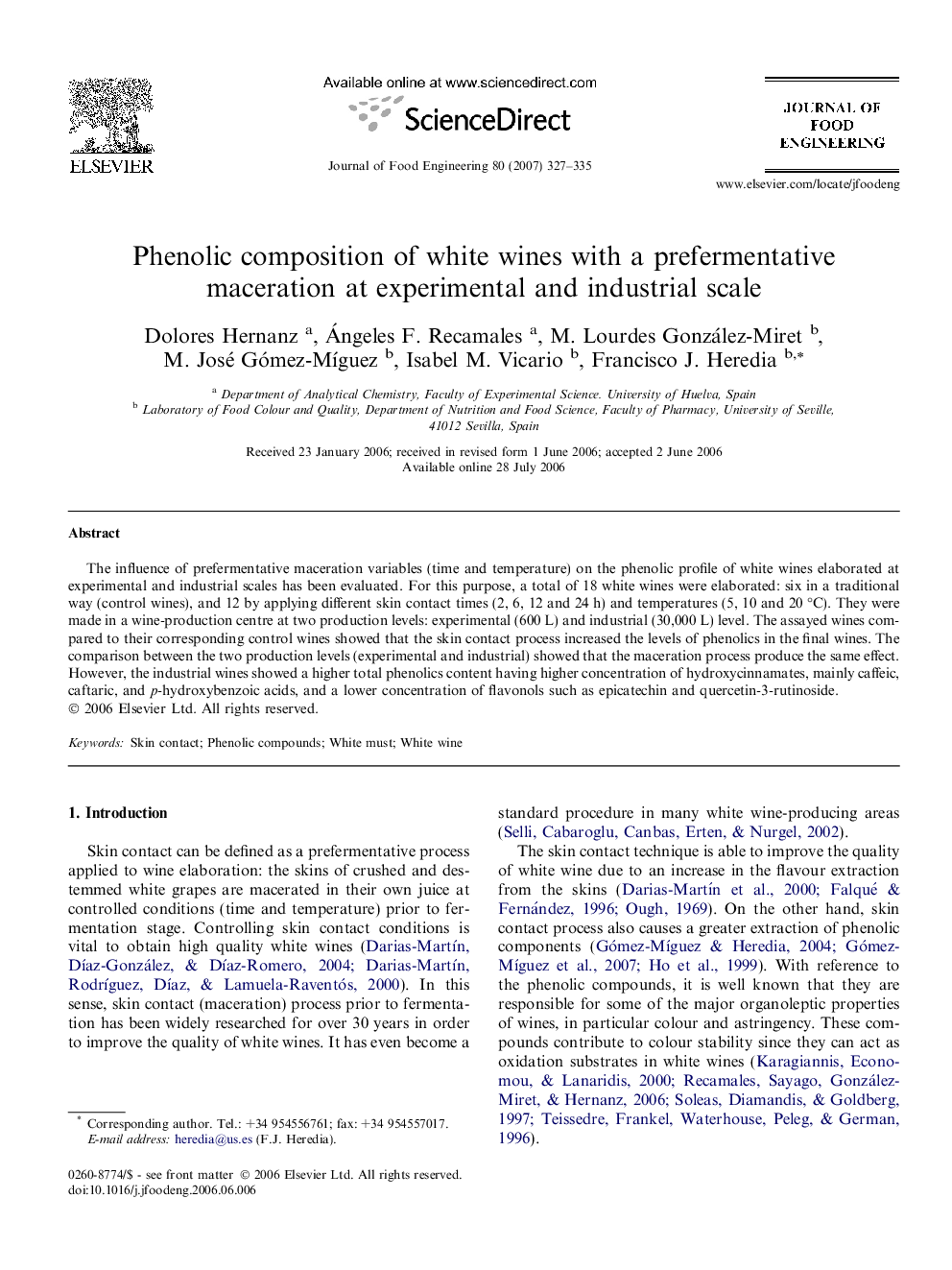| Article ID | Journal | Published Year | Pages | File Type |
|---|---|---|---|---|
| 226331 | Journal of Food Engineering | 2007 | 9 Pages |
The influence of prefermentative maceration variables (time and temperature) on the phenolic profile of white wines elaborated at experimental and industrial scales has been evaluated. For this purpose, a total of 18 white wines were elaborated: six in a traditional way (control wines), and 12 by applying different skin contact times (2, 6, 12 and 24 h) and temperatures (5, 10 and 20 °C). They were made in a wine-production centre at two production levels: experimental (600 L) and industrial (30,000 L) level. The assayed wines compared to their corresponding control wines showed that the skin contact process increased the levels of phenolics in the final wines. The comparison between the two production levels (experimental and industrial) showed that the maceration process produce the same effect. However, the industrial wines showed a higher total phenolics content having higher concentration of hydroxycinnamates, mainly caffeic, caftaric, and p-hydroxybenzoic acids, and a lower concentration of flavonols such as epicatechin and quercetin-3-rutinoside.
